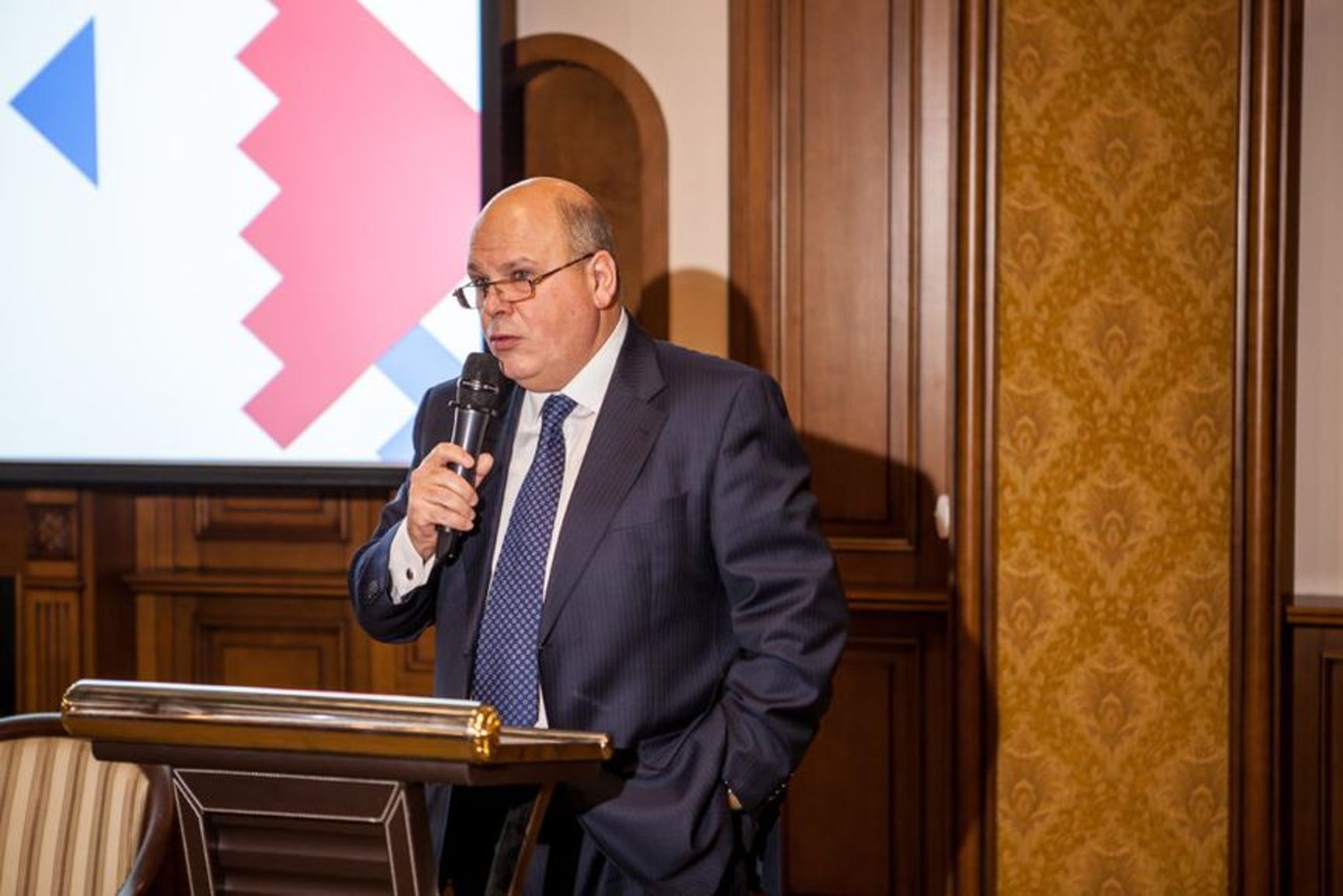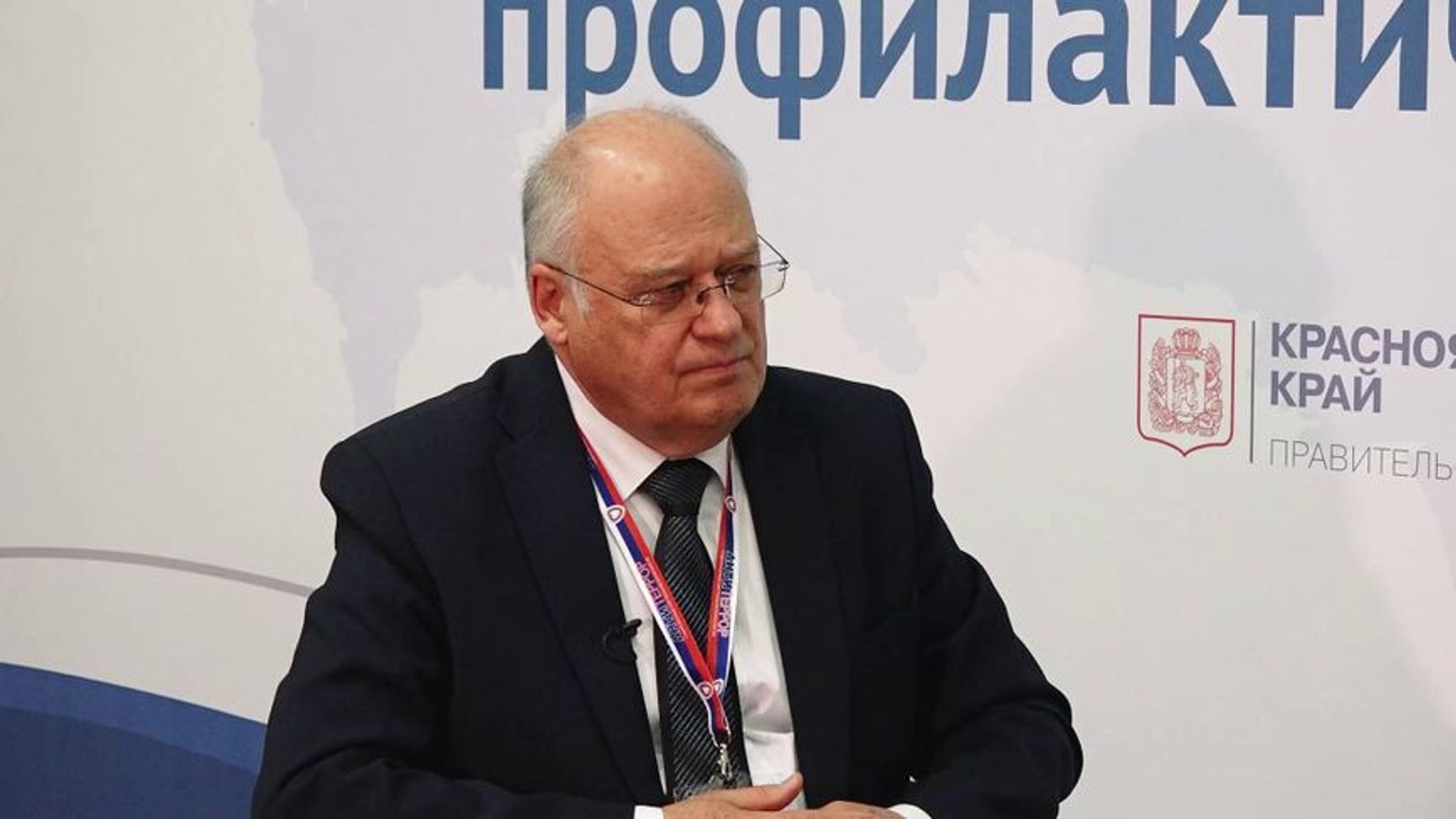

The terrorist attack at Crocus City Hall was one of the deadliest in Russian history, and although Russia had been warned about it by multiple Western intelligence agencies — as well as by the intelligence services of Tajikistan — the FSB not only failed to prevent it, but also failed to take any increased security measures in Moscow. Instead, in the days before March 22, Vladimir Putin personally labeled the warnings as “blackmail.” All the while, since 2006 Russia has had a special body for countering terrorism — the so-called National Antiterrorism Committee (NAC), headed by FSB Director Alexander Bortnikov and boasting a membership that includes key security officials like Interior Minister Vladimir Kolokoltsev and Defense Minister Sergei Shoigu. The NAC's powers are virtually unlimited, and its activities seem to have been intense — 25 conferences, forums, roundtables and other events were held under the auspices of the NAC last year alone. Except the topics of these events were not ISIS terrorists, as one would expect, but opposition activists, Ukrainians, and LGBT people.
Content
The “Ukrainianization” of terrorism and priests in the service of the FSB
Who in Russia is fighting terrorism?
The “Ukrainianization” of terrorism and priests in the service of the FSB
Last August, the conference “Culture Against Terrorism: Countering Terrorist Ideology” took place in the Moscow district of Strogino, a few miles from Crocus City Hall. The event was attended by 450 cultural workers, museum employees, librarians, and cinema staff, while the speakers focused on “combating terrorist ideology” and working to prevent “negative phenomena” among the youth.
Andrei Kuzmichyov, the head of Moscow’s Antiterrorist Commission (ATC), gave the most specific speech at the event. Kuzmichyov did not mention Ukraine, the U.S., or the EU, but those present immediately guessed where the wind was blowing:
“The process of radicalizing the population is facilitated by the information war waged by a number of states against the Russian Federation, the main methods of which are creating an atmosphere of immorality and soullessness, negative attitude to its cultural heritage, as well as manipulating public consciousness, distorting world history and the historical memory of [Russia’s] peoples.”
At the end of the conference, the participants were shown the play “People A,” dedicated to the FSB special unit “Alpha.” According to the VK social network page of Alexei Filatov, performance resonated in their hearts,” Alexei Filatov, the author of the book “People A” and a former FSB special forces officer, “After the performance of our production, several women came up to me with tears in their eyes and thanked me for the performance.”

Alexei Filatov (third from left)
No one shed any tears at the rest of the events supported by the NAC. For example, on March 23, 2023 — exactly one year before the terrorist attack in Crocus City Hall — a youth security forum “Don’t Break The Law!” was held in Birobidzhan, a city near the China-Russia border in Russia’s Far East, where schoolchildren were told how terrorism differs from extremism. The name of Russia’s main “extremist” — Alexei Navalny — was not mentioned from the podium. However, the children were warned of the age when they become criminally liable for extremism — including for “spreading materials” recognized as extremist.
Later, the NAC held a conference on countering terrorism, fascism and radical ideology among young people at Moscow’s Finance University. Students and military cadets were required to attend, with the lectures mainly focused on the Chechen wars, Ukraine, and teaching the younger generation patriotism. No mention was made of ISIS militants. Similar events were held in Moscow and Tambov. In Moscow, the forum was called “Security Planner,” and most of the speeches described methods of detecting “hidden propaganda of neo-Nazi ideology in the information space.”
In Tambov, Islamic radicalism wasn’t discussed either — priority instead went to “preventing the spread of extremism in the new Russian territories,” meaning the occupied and annexed Donetsk, Kherson, Luhansk and Zaporizhzhia oblasts of Ukraine. Konstantin Machabeli, director of the Center for the Prevention of Religious and Ethnic Extremism in Educational Organizations of the Russian Federation, gave a big speech.
Prior to his dismissal in 2011, Machabeli wore the police epaulets of a major general and served as deputy head of the Russian Interior Ministry's Bureau of Special Technical Measures. These “technical measures” included phone tapping, account hacking, and the creation of mirror websites. Yevgeny Chichvarkin, the ex-owner of Russian mobile phone store chain Yevroset, called the general one of the instigators of his prosecution. Chichvarkin left Russia in 2008, having narrowly escaped arrest.

Konstantin Machabeli
Here are some of the other events the NAC held last year.
31.11.2023, Ivanovo: “Round Table on Countering Extremism and Terrorism in the Educational Sphere and Youth Environment.” The attendees agreed to hold a youth gathering titled “To Live in Peace is to be in Peace,” and advised local priests to become more involved in the prevention of terrorism and neo-Nazism.
Priests in Russia’s Ivanovo were advised to become more involved in the prevention of terrorism and neo-Nazism
07.12.2023, Volgograd, seminar: “Extremism Isn’t Our Thing.” Topics discussed: information security, terrorist ideology, techniques of manipulation of personality, recruitment to terrorist organizations.
08.12.2023, Nizhny Novgorod, conference: “Absolute Terrorism: Destructive Currents as a Terrorist Threat in the Conditions of the [Special Military Operation].” The event was attended by Igor Kostyukevich — the so-called “senator” from the occupied Kherson Region. Ukraine was the focus of the event once again.
By March 2024, forums and conferences with the NAC’s involvement had been held in Nalchik, Vladikavkaz, Saransk, Ryazan, Crimea, Ivanovo, Sevastopol, Rostov-on-Don, Orel, Tyumen, Kemerovo, Volgograd, and Saratov. Islamic radicalism was hardly discussed at these events — all the emphasis was on the fight against Ukraine and its «curators» from Western countries. At the same time, of course, there was no evidence presented at the events to back up the numerous allegations against the “enemies.”
Who in Russia is fighting terrorism?
A month before the tragedy at Moscow’s Crocus City Hall, the NAC held a meeting, where FSB head Alexander Bortnikov took the floor: “Western intelligence services — and Ukrainian centers of information and psychological operations controlled by them — are trying to involve our citizens in subversive and terrorist activities.” He also boasted that since February 2022, Russia’s internet watchdog Roskomnadzor had blocked or removed more than 37,000 posts related to the activities of Ukrainian neo-Nazi organizations. Not a word was said about ISIS.
While Bortnikov is in charge of the overall management of the NAC, his deputy, FSB Colonel General Igor Sirotkin, is in charge of its apparatus. He comes from a narrow clan of St. Petersburg security officers and, according to The Insider's source in the FSB, owes his career entirely to former FSB Director Nikolai Patrushev, who currently serves as the secretary of Russia’s Security Council. In January this year, Sirotkin visited Dagestan, where he held a meeting on terrorism prevention, eventually saying he was “satisfied” with the local special services’ efforts. As a goodbye gesture, he was shown works of young artists titled “Together Against Terror,” and watched schoolchildren dance the lezginka — a popular folk dance in Dagestan and the North Caucasus.
Igor Sirotkin
Children in Dagestan dance the lezginka
Vice-Admiral Igor Kulyagin, who previously served in the FSB’s Naval Department, is the first deputy chief of staff of the NAC. He’s still registered at the FSB’s headquarters in Moscow — Lubyanka Street, 1/3. At the beginning of the year, Kulyagin visited Rostov-on-Don and gave a big interview after a meeting on the prevention of terrorism, making special note of “Russian spiritual values” such as dignity, human rights and freedoms, humanism, and mercy.
However, according to Kulyagin, in the West, these “basic universal cultural values are perverted and interpreted to serve the political and economic interests of elites, when tolerance is expressed, for example, in appointing of people to positions of responsibility not based on their professional abilities, but on their race and sexual orientation.”
Andrei Przhezdomsky, a former deputy resident of the KGB's First Chief Directorate in Germany, is in charge of ideology at the NAC. He is the author of several books and has been on the hunt for secret Nazi bunkers and the Amber Room — a luxurious royal chamber looted from St. Petersburg by German troops during World War II and later lost. In the past year, Przhezdomsky has traveled to Tula, Volgograd, and Yekaterinburg, where he met with law enforcement officials. In Yekaterinburg, he said that Russia is threatened not only by the neo-Nazi Ukrainian regime, but also by international terrorist organizations.

Andrei Przhezdomsky
Another of Sirotkin's deputies is Andrei Novikov — one more official from Russia’s Interior Ministry. And while in earlier interviews he saw ISIS as being among Russia's main enemies, after the aggression against Ukraine began, Novikov's rhetoric took aim at Ukrainian and Western intelligence services. He claims Ukraine and the West allegedly run Columbine-themed communities on the Internet and involve Russian youth in subversive activities.
After Russia invaded Ukraine, NAC officials seem to have taken aim at Ukrainian and Western intelligence
The NAC website mentions another of Sirotkin's deputies, Andrei Poddubny. The Insider's source in the FSB confirmed that Poddubny works for the FSB and “coordinates the NAC’s work with Rosmolodezh [Russia’s Federal Agency for Youth Affairs] and Roskomnadzor” — as an added bonus, he was also tasked with supervising the children's security magazine “Spasaikin” (a play on the word спасать, or “spasat”, meaning “to save”). The magazine is registered in a Moscow apartment in a house on Bolshaya Filyovskaya Street.
The apartment was once the home of war veteran Igor Golovachev, and after his death, the apartment was taken over by the FSB. According to Spasaikin's video presentation, the magazine was founded in 2005 to protect Russian children from foreign influence, which sows indifference, dependence, social passivity and erodes Russia's concept of statehood.